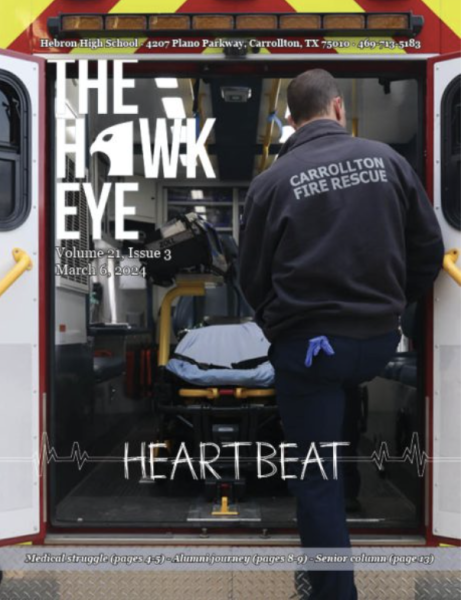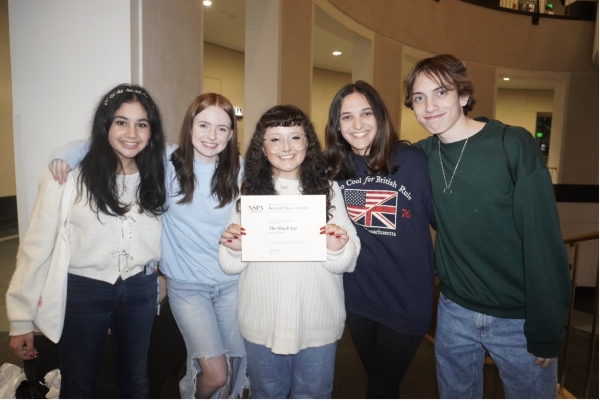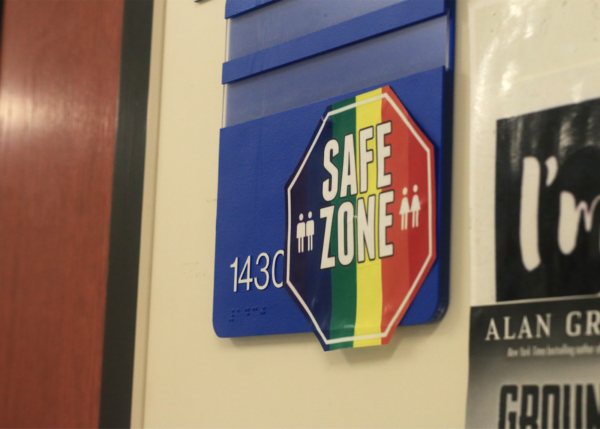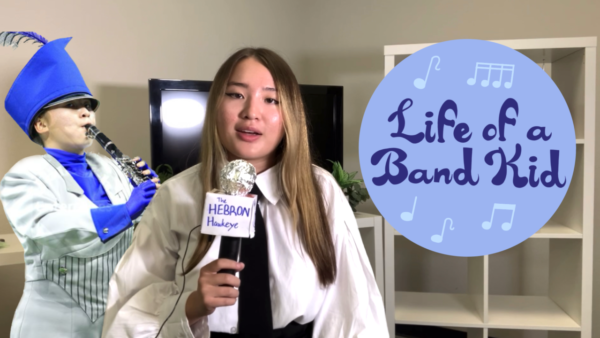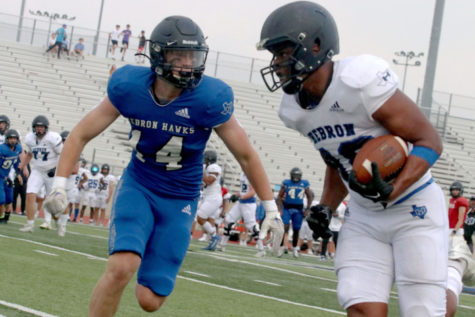Anime Review: Attack on Titan
October 23, 2013
To the general public, “anime” is thought of as cartoons with a reckless hero archetype, fighting to save the world and girls drawn with extraordinary features. While most mainstream animes have predictable plotlines and stereotypical characters, there are a few titles that stick out from the rest; this summer’s “Attack on Titan” is one of those exceptions.
The story of “Attack on Titan” starts one hundred years ago, when humankind was pushed to the brink of extinction by Titans. They are oversized, humanlike creatures with no intelligence that feed on humans for pure enjoyment. The remaining humans survived by creating a city with three outer walls to protect themselves from further Titan attacks.
In the present, teenager Eren Jaeger and his foster sister Mikasa Ackerman were witnesses to the next Titan attack, which destroyed their home and killed their mother. Promising revenge, Eren and Mikasa enter the military training corps to train to kill Titans and finally rid the world of the horrible creatures.
The episodes move at a medium pace, escalating near the end and finishing off with a cliffhanger. While this review concerns only the first season, the series ended rather abruptly with many unanswered questions, which are set up to be answered in the next installment.
“Attack on Titan” highlights some of the harsh aspects of reality: fear and the unexpected. Mikasa says in the show, “the world is cruel, but also very beautiful” which perfectly summarizes the entire nature of series. Throughout the show, the characters are forced into seemingly inescapable situations, making harsh sacrifices, and dealing with unfair deaths of the innocent. These aspects are what make this show different from other anime, because it isn’t only about entertainment, but also the message that reality is not what it seems. (8/10)
The strongest component of “Attack on Titan” is undoubtedly the style of the drawings, which complement the show’s theme through crude lines and dark tones. Every scene is drawn to detail, accentuating everything from the characters’ facial expressions to the small, crumpled flower in the background. The Titans are also drawn with creepy, dumb-looking facial expressions and humanlike bodies to make them more frightening. The action scenes use computer graphics to create a fast-paced 3D effect that displays the horrors of battle with blood and gore and leaves the viewer breathless. (10/10)
The opening and ending themes perfectly match the show; the background music always works in the situation of the scene, such as fast-paced rock music during action scenes and slow ballads during reminiscent flashbacks. The music truly sets the mood of the scene. (10/10)
Part of why “Attack on Titan” is so memorable are the characters themselves. Eren Jaeger, the main protagonist, has the greatest impression. His rash decisions make him seem impulsive; however, he does it only out of worry for his teammates and friends. His entire character fits the image of a typical hero archetype, but there a few twists that make him stand out.
Mikasa is the series’ main female protagonist, and as such, she is the very antithesis of what you’d expect from a female character. Her unnatural strength for a girl as well as her uncanny leadership qualities make her an admirable character. She is not the type of character who panics in times of distress and instead makes it her duty to protect those around her.
While Armin Arlert is the weakest character in terms of brawn, his brains are his greatest quality. He is the most relatable of the character due to his inferiority complex, but those moments in which he shines through his timidness make him likeable. (8/10)
The underlying message that the world is indeed both beautiful and cruel is a reason alone to experience the show. “Attack on Titan” does not fit the definition of a cliche anime most people expect; the science fiction aspects coupled with a realistic approach make this show something even non-anime fans can watch and enjoy. (9/10)






